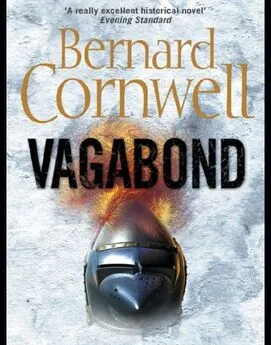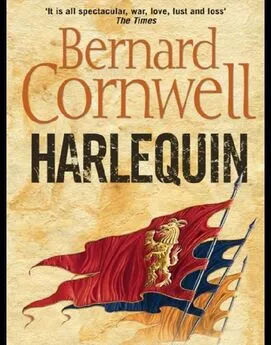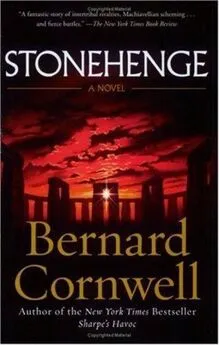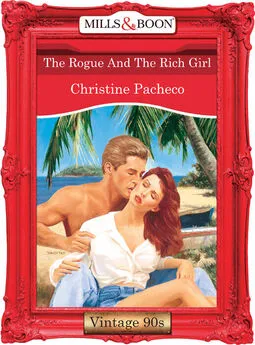Bernard Cornwell - The Grail Quest 2 - Vagabond
- Название:The Grail Quest 2 - Vagabond
- Автор:
- Жанр:
- Издательство:неизвестно
- Год:неизвестен
- ISBN:нет данных
- Рейтинг:
- Избранное:Добавить в избранное
-
Отзывы:
-
Ваша оценка:
Bernard Cornwell - The Grail Quest 2 - Vagabond краткое содержание
In Harlequin, Thomas of Hookton travelled to France as an archer and there discovered a shadowy destiny, which linked him to a family of heretical French lords who sought Christendom′s greatest relic.
Having survived the battle of Crécy, Thomas is sent back to England, charged with finding the Holy Grail. But Thomas is an archer and when a chance comes to fight against an army invading northern England he jumps at it. Plunged into the carnage of Neville′s Cross, he is oblivious to other enemies who want to destroy him. He discovers too late that he is not the only person pursuing the grail, and that his rivals will do anything to thwart him.
After hunting and wounding him, Thomas′s enemies turn him into a fugitive. Fleeing England, he travels to Normandy, determined to rescue Will Skeat, his old commander from Harlequin. Finally Thomas leads his enemies back to Brittany, where he goes to discover an old love and where his pursuers at last trap their reluctant pilgrim.
Vagabond is a vivid and realistic portrait of England at a time when the archer was king of Europe′s battlefields.
The Grail Quest 2 - Vagabond - читать онлайн бесплатно ознакомительный отрывок
Интервал:
Закладка:
The drums, those that were still whole, had begun their noise again, and the Scots heaved to their rhythm. 'The Bruce! The Bruce!' some chanted while others called on their patron, 'St Andrew! St Andrew!' Lord Robert Stewart, gaudy in his blue and yellow colours and with a thin fillet of gold about the brow of his helmet, used a two-handed sword to chop at the English men-at-arms who cowered from the rampant Scots. Lord Robert, safe from arrows at last, had lifted his visor so he could see the enemy. 'Come on!' he screamed at his men. 'Come on! Hard into them! Kill them! Kill them!' The King had promised that the Christmas feast would be in London and there seemed only a small screen of frightened men to break before that promise could come true. The riches of Durham, York and London were just a few sword strokes away; all the wealth of Norwich and Oxford, of Bristol and Southampton was only a handful of deaths from Scottish purses. 'Scotland! Scotland! Scotland!' Lord Robert called. 'Scotland!' And the pikeman, because the trapped visor was obstructing his blade, was beating on a man's helmet with the hook side of his weapon's head, not chopping through the metal, but smashing it, hammering the broken helmet into the dying man's brain so that blood and jelly oozed from the visor's slits. An Englishman screamed as a Scottish pike struck through his mail into his groin. A boy, perhaps a page, reeled back with his eves bloodied from a sword slash. 'Scot-land!' Lord Robert could smell the victory now. So close! He shoved on, felt the English line jar and move hack, saw how thin it was, fended off a lunge with his shield, stabbed with his sword to kill a fallen and wounded enemy, shouted at his squires to keep a watch for any rich English nobleman whose ransom could enrich the house of Stewart. Men grunted as they stabbed and hacked. A tribesman reeled from the fight, gasping for breath, trying to hold his guts inside his slashed belly. A drummer was beating the Scots on. 'Bring my horse!' Lord Robert called to a squire. He knew that the beaten English line had to break in a moment and then he would mount, take his lance, and pursue the beaten enemy. 'On! On!' he shouted. 'On!' And the man wielding the longhafted pike, the huge Scotsman who had driven a gap into the English front rank and who seemed to be carving a bloody path south all by himself, suddenly made a mewing noise. His pike, high in the air where it was still fouled with the bent visor, faltered. The man jerked and his mouth opened and closed, opened and closed again, but he could not speak because an arrow, its white feathers bloodied, jutted from his head. An arrow, Lord Robert saw, and suddenly the air was thick with them and he pulled down the visor of his helmet so that the day went dark.
The damned English archers were back.
Sir William Douglas had not realized how deep and steep-sided was the bracken-covered saddle in the ridge's flank until he reached its base and there, under the flail of the archers, found he could neither go for-ward nor back. The front two ranks of Scottish men-at-arms were all either dead or wounded and their bodies made a heap over which he could not climb in his heavy mail. Robbie was screaming defiance and trying to scramble over that heap, but Sir William unceremoniously dragged his nephew back and thrust him down into the bracken. `This isn't a place to die, Robbie!'
'Bastards!'
'They may be bastards, but we're the fools!' Sir William crouched beside his nephew, covering them both with his huge shield. To go back was unthinkable, for that would be running from the enemy, yet he could not advance and so he just marvelled at the force of the arrows as they thumped into the shield's face. A rush of bearded tribesmen, more nimble than the men-at-arms because they refused to wear metal armour, seethed past him, howling their wild defiance as they scrambled bare-legged across the heap of dying Scots, but then the English arrows began to strike and hurl the clansmen back. The arrows made sounds like bladders rupturing as they struck and the clansmen mewed and groaned, twitching as more arrows thumped home. Each missile provoked a spurt of blood so that Sir William and Robbie Douglas, unscathed beneath their heave shield, were spattered with gore.
A sudden tumult among the nearby men-at-arms provoked more arrows and Sir William bellowed angrily at the soldiers to lie down, hoping that stillness would persuade the English archers that no Scotsmen lived, but the men-at-arms called back that the Earl of Moray had been hit. 'Not before time,' Sir William growled to Robbie. He hated the Earl more than he hated the English, and he grinned when a man shouted that his lord-ship was not just hit, but dead, and then another hail of arrows silenced the Earl's retainers and Sir William heard the missiles clanging on metal, thumping into flesh and striking the willow boards of shields, and when the rattle of arrows was done there was just the moaning and weeping, the hissing of breath, and the creak of leather as men died or tried to extricate them-selves from under the piles of dying.
'What happened?' Robbie asked.
'We didn't scout the land properly,' Sir \Villiam answered. 'We outnumber the bastards and that made us confident.' Ominously, in the arrowless quiet, he heard laughter and the thump of boots. A scream sounded and Sir William, who was old in war, knew that the English troops were coming down into the bowl to finish off the injured. 'We're going to run back soon,' he told Robbie, 'there's no choice in it. Cover your arse with your shield and run like the devil.'
'We're running away?' Robbie asked, appalled.
Sir William sighed. 'Robbie, you damned fool, you can run forward and you can die and I'll tell your mother you died like a brave man and a halfwit, or you can get the hell back up the hill with me and try to win this battle.'
Robbie did not argue, but just looked back up the Scottish side of the hollow where the bracken was flecked with white-feathered arrows. 'Tell me when to run,' he said. A dozen archers and as many English men-at-arms were using knives to cut Scottish throats. They would pause before finishing off a man-at-arms to discover whether he had any value as a source of ransom, but few men had such value and the clansmen had none. The latter, hated above all the Scots because they were so different, were treated as vermin. Sir William cautiously raised his head and decided this was the moment to retreat. It was better to scramble out of this bloody trap than be captured and so, ignoring the indignant shouts of the English, he and his nephew scrambled hack up the slope. To Sir William's surprise no arrows came. He had expected the grass and bracken to be thrashed with arrows as he clambered out of the hollow, but he and Robbie were left alone. He turned halfway up the slope and saw that the English bowmen had vanished, leaving only men-at-arms on this flank of the field. At their head, watching him from the hollow's farther lip, was Lord Outhwaite, who had once been Sir William's prisoner. Outhwaite, who was lame, was using a spear as a stave and, seeing Sir William, he raised the weapon in greeting.
'Get yourself some proper armour, Willie!' Sir William shouted. Lord Outhwaite, like the Knight of Liddesdale, had been christened William. 'We're not done with you yet.'
'I fear not, Sir William, I do indeed fear not,' Lord Outhwaite called back. He steadied himself with his spear. 'I trust you're well?'
'Of course I'm not well, you bloody fool! Half my men are down there.'
'My dear fellow,' Outhwaite said with a grimace, and then waved genially as Sir William pushed Robbie on up the hill and followed him to safety. Sir William, once back on the high ground, took stock. He could see that the Scots had been beaten here on their right, but that had been their own fault for charging headlong into the low ground where the archers had been able to kill with impunity. Those archers had mysteriously vanished, but Sir William guessed they had been pulled clear across the field to the Scottish left flank that had advanced a long way ahead of the centre. He could tell that because Lord Robert Stewart's blue and yellow banner of the lion was so far ahead of the King's red and yellow flag. So the battle was going well on the left, but Sir William could see it was going nowhere in the centre because of the stone wall that obstructed the Scottish advance.
'We'll achieve nothing here,' he told Robbie, 'so let's be useful.' He turned and raised his bloody sword. 'Douglas!' he shouted. 'Douglas!' His standard-bearer had disappeared and Sir William supposed that the man, with his red-hearted flag, was dead in the low ground. 'Douglas!' he called again and, when sufficient of his men had come to him, he led them to the embattled central sheltron. 'We fight here,' he told them, then pushed his way to the King who was on horseback in the second or third rank, fighting beneath his banner that was thick stuck with arrows. He was also fighting with his visor raised and Sir William saw that the King's face was half obscured with blood. 'Put your visor down!'
he roared.
The King was trying to stab a long lance across the stone wall, but the press of men made his efforts futile. His blue and yellow surcoat had been torn to reveal the bright plate metal beneath. An arrow thudded into his right espalier that had again ridden up on the breast-plate and he tugged it down just as another arrow ripped open the left ear of his stallion. He saw Sir William and grinned as though this was fine sport. 'Pull your visor down!' Sir William bellowed and he saw that the King was not grinning, but rather a whole flap of his cheek had been torn away and the blood was still welling from the wound and spilling from the helmet's lower rim to soak the torn surcoat. 'Have your cheek bandaged!' Sir William shouted over the din of fighting. The King let his frightened horse hack away from the wall. 'What happened on the right?' His voice was made indistinct by his wound.
'They killed us,' Sir William said curtly, inadvertently jerking his long sword so that drops of blood sprayed from its tip. 'No, they murdered us,' he growled. 'There was a break in the ground and it snared us.'
'Our left is winning! We'll break them there!' The King's mouth kept filling with blood, which he spat out, but despite the copious bleeding he did not seem over-concerned with the wound. It had been inflicted at the very beginning of the battle when an arrow had hissed over the heads of his army to rip a gouge in his cheek before spending itself in his helmet's liner. 'We'll hold them here,' he told Sir William.
'John Randolph's dead,' Sir William told him. 'The Earl of Moray,' he added when he saw that the King had not understood his first words.
'Dead?' King David blinked, then spat more blood. 'He's dead? Not a prisoner?'
Another arrow slapped at his flag, but the King was oblivious of the danger. He turned and stared at his enemy's flags. 'We'll have the Archbishop say a prayer over his grave, then the bastard can say grace over our supper.' He saw a gap in the front Scottish rank and spurred his horse to fill it, then lunged with his lance at an English defender. The King's blow broke the man's shoulder, mangling the bloody wound with the debris of torn mail. 'Bastards!' the King spat. 'We're winning!' he called to his men, then a rush of Douglas's followers pushed between him and the wall. The newcomers struck the stone wall like a great wave, but the wall proved stronger and the wave broke on its stones. Swords and axes clashed over the coping and men from both sides dragged the dead out of their paths to clear a passage to the slaughter. 'We'll hold the bastards here,' the King assured Sir William, 'and turn their right.'
Читать дальшеИнтервал:
Закладка:





![Робин Хобб - Странствия Шута [Fool’s Quest]](/books/1086209/robin-hobb-stranstviya-shuta-fool-s-quest.webp)

